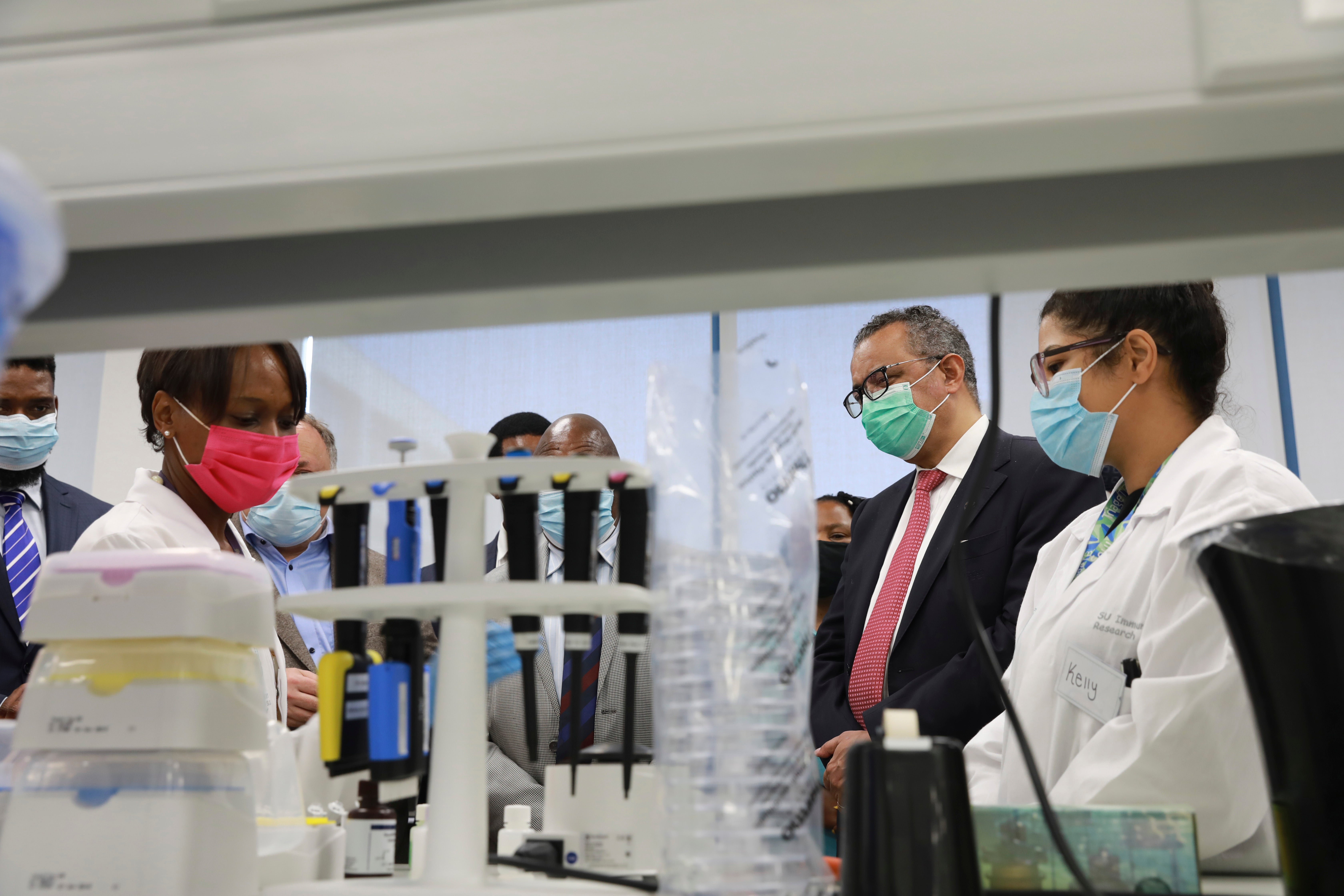WHO chief praises South Africa's work to make COVID vaccines
The visiting chief of the World Health Organization says that South Africa’s efforts to produce vaccines are key to helping the African continent become more self-sufficient in inoculations to combat COVID-19 and many other diseases

Your support helps us to tell the story
From reproductive rights to climate change to Big Tech, The Independent is on the ground when the story is developing. Whether it's investigating the financials of Elon Musk's pro-Trump PAC or producing our latest documentary, 'The A Word', which shines a light on the American women fighting for reproductive rights, we know how important it is to parse out the facts from the messaging.
At such a critical moment in US history, we need reporters on the ground. Your donation allows us to keep sending journalists to speak to both sides of the story.
The Independent is trusted by Americans across the entire political spectrum. And unlike many other quality news outlets, we choose not to lock Americans out of our reporting and analysis with paywalls. We believe quality journalism should be available to everyone, paid for by those who can afford it.
Your support makes all the difference.South Africa s efforts to produce vaccines are key to helping the African continent become more self-sufficient in inoculations to combat COVID-19 and many other diseases, the visiting chief of the World Health Organization said Friday.
On his visit to Cape Town WHO director-general Tedros Ghebreyesus is viewing three facilities that are starting work to manufacture vaccines.
Tedros visited the Biomedical Research Institute at the Tygerberg campus of Stellenbosch University on Friday. He is also scheduled to visit Afrigen Biologics & Vaccines and the Biovac laboratories in Cape Town.
The pandemic had shown the need for local production of vaccines in low and middle-income countries, he said addressing a press briefing on Friday.
“More than half of the world’s population is now fully vaccinated, and yet 84% of the population of Africa is yet to receive a single dose," he said. “Much of this inequity has been driven by the fact that globally vaccine production is concentrated in a few, mostly high-income countries. One of the most obvious lessons of the pandemic, therefore, is the urgent need to increase local production of vaccines, especially in low and middle-income countries."
Tedros was also scheduled to visit the Afrigen lab that, with support from the WHO, is creating a COVID-19 vaccine from scratch. The laboratory is replicating the Moderna vaccine using mRNA vaccine technology. The Afrigen facility has backing from WHO and several other partners including the governments of South Africa, France and Belgium. The initiative is also supported by the Africa Centers for Disease Control and Prevention.
Tedros said it is expected that clinical trials for the vaccine candidate developed by Afrigen would start in 2022 and it is hoped that approval for its use will be granted in 2024.
“Delighted to be in South Africa to visit the groundbreaking WHO mRNA vaccine technology transfer hub in Cape Town.” Tedros tweeted Friday. “If COVID19 has taught the world anything, it is all countries need equitable access to knowledge and tools that protect health. The hub is making this possible in South Africa.”